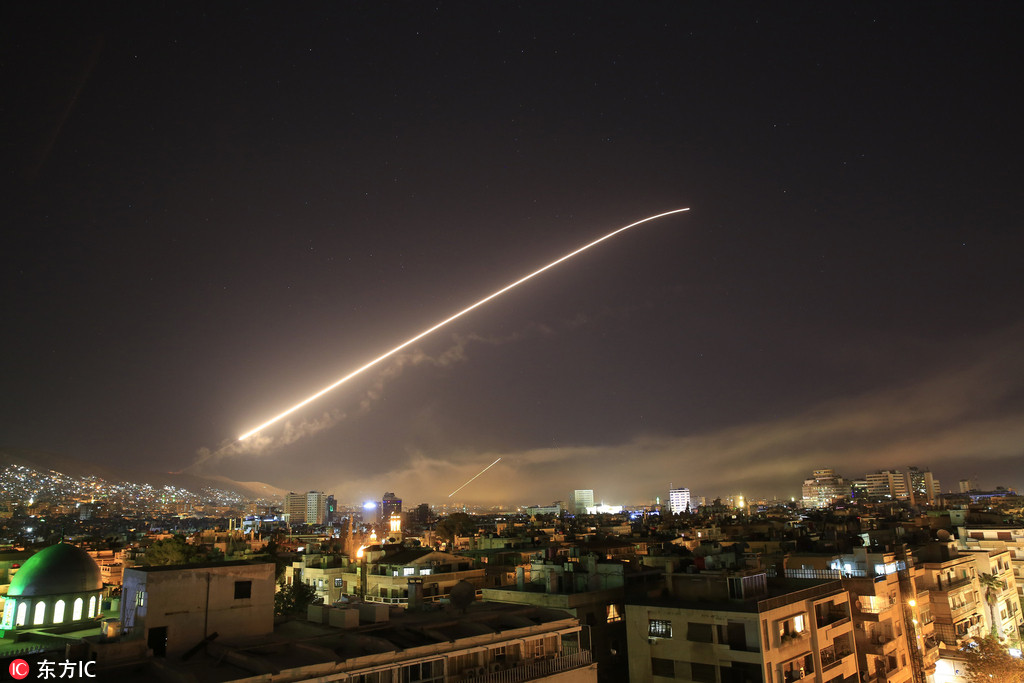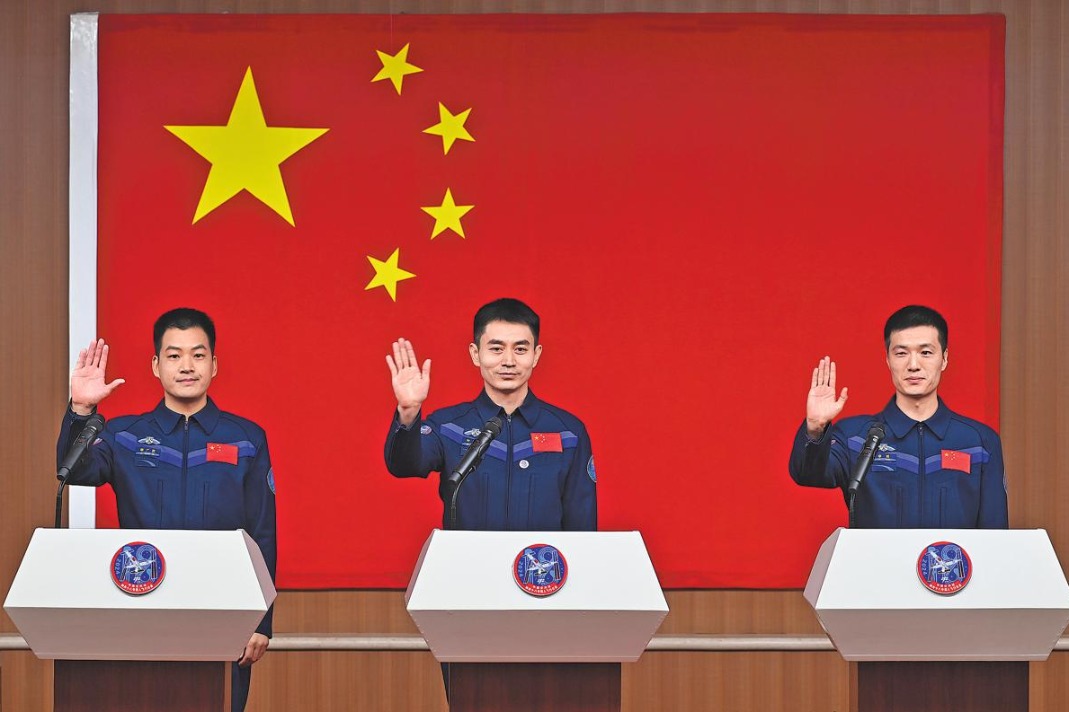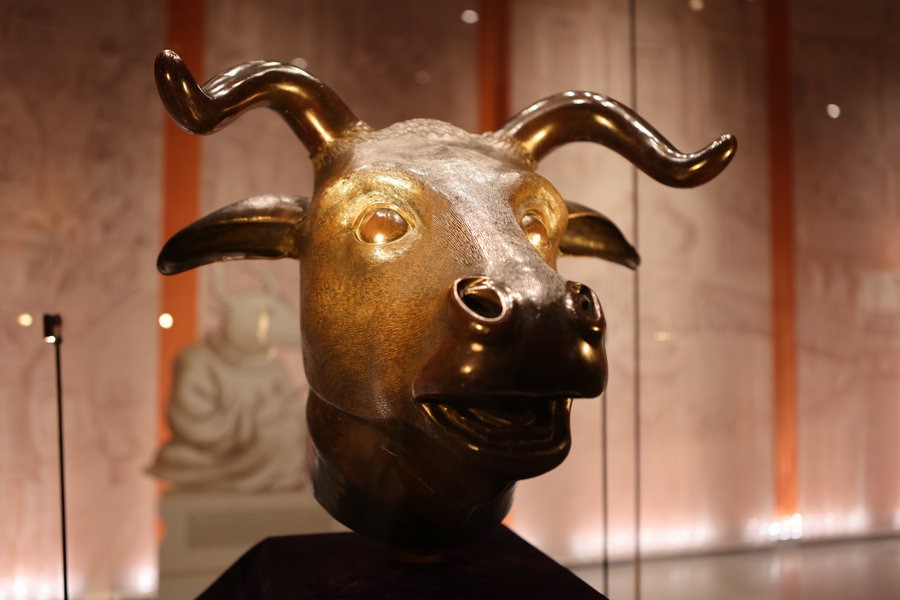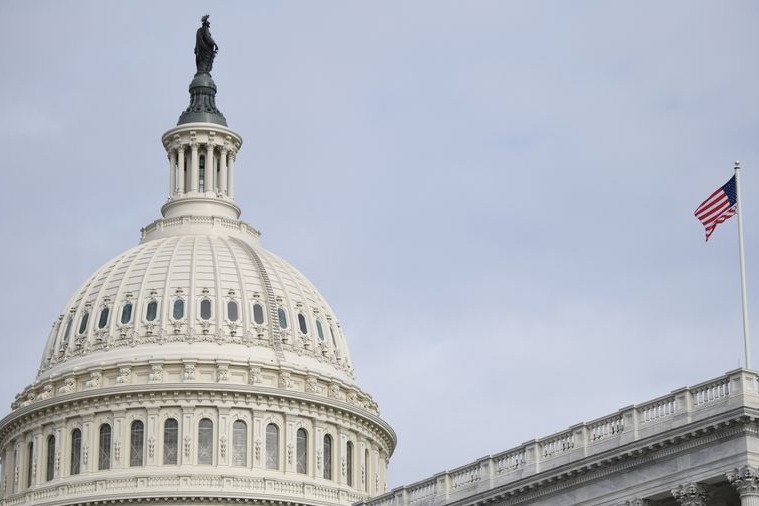US attack on Syria based on flimsy grounds


Alleging that the Bashar al-Assad government used chemical weapons in Douma, eastern Ghouta, the US, Britain and France fired nearly 100 cruise missiles on Syria on April 14, further ravaging the already battered country and its people.
This forced an indignant Bashar Jaafari, Syria's permanent representative to the United Nations, to describe the air strikes as a blatant invasion of his country.
About one year ago, on US President Donald Trump's orders, more than 50 cruise missiles were fired on Syria on the same pretext: use of chemical weapons by Assad. And even this time the United States (and Britain and France) claimed Assad had used chemical weapons without presenting any convincing evidence.
It is intriguing that the Syrian government has been accused of using chemical weapons at a time when it has almost achieved victory against the rebels. Western allegations against Syria have acquired a pattern: displaced civilians alleging deaths and injuries in attacks, reports immediately spreading online blaming the Syrian government, and the Western powers condemning Assad either for attacking civilians or for using chemical weapons. Not surprisingly, even many people in the US, France and Britain no longer buy such stories.
Besides, the US-led air strikes were launched just before the Organization for the Prohibition of Chemical Weapons was to begin investigation into the Douma incident at the Syrian government's invitation. This prompted Russian Foreign Minister Sergei Lavrov to say that the West launched the strikes to prevent the OPCW's investigation, He told BBC in an interview that for the West, the "proof is in the punishment … they punished first in Douma… and then they wait for inspectors of OPCW to visit the place and to inspect". Russia also said the so-called chemical attack videos released by the Syrian Civil Defence are self-directed and self-acted.
But why do the US, Britain and France refuse to let go of Syria?
Britain aims to pre-empt the adverse impacts of Brexit and repay its allies for their support in the nerve agent attack case involving a former Russian spy in the UK. And an ambitious French President Emmanuel Macron wishes to widen France's influence in the Middle East and become the new leader of the European Union.
Yet for the US, things are a little more complicated. The Trump administration intends to overthrow the Assad government and play a leading role in the Middle East. Ever since the Sept 11, 2001, terrorist attacks, the US has labeled Syria a "rogue state". Former US president Barack Obama even said Syria is the biggest security threat the US faces. Moreover, the US' core objective is to minimize Russia's global role.
The turmoil in Syria mirrors superpower rivalry, with the US colluding with other Western powers to entice Russia into the abyss of the Syrian civil war to ultimately drag it down. Trump also hopes to embellish his work performance before the midterm US elections and shake off the negative influences of the Russia-related US presidential election scandal.
The US, British and French air strikes have inflamed regional tensions and created more hurdles to the settlement of the Syrian issue through negotiations. First, given a breather of sorts, the rebels are more likely to refuse reconciling with the Syrian government in the near future. Second, the refugee issue and humanitarian crisis are likely to become increasingly severe.
It is now difficult to say when the Syria civil war will end. But one thing is for sure, Russia will not easily step back from its position of supporting Assad. Although a full-scale war between the big powers is not expected, minor conflicts are likely. But no side will emerge winner if a full-fledged war breaks out, with all sides suffering heavy losses. Hopefully good sense prevails and the big powers realize the importance of talks to end a conflict.
The author is a research fellow at the Chinese Academy of Social Sciences.


































